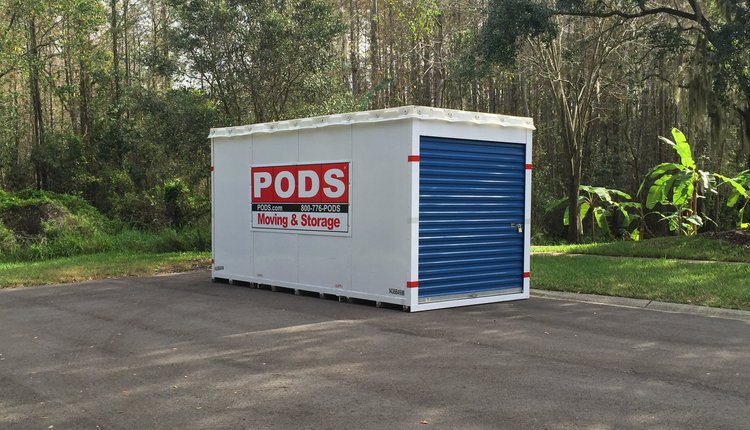There has a bit of what I would call “inflammatory” publicity recently about a lawsuit filed against FedEx for allegedly misapplying their residential surcharge to transactions that were consigned to locations that appear to be solely commercial. The press has reported that a plaintiff has evidence of numerous transactions going to business addresses such as FedEx’s headquarters in Memphis where the location is clearly and solely a commercial building.
The allegation goes on to say that an employee of FedEx brought this fact to the attention of senior management that FedEx had this issue, and that senior management did not react (to the satisfaction of the employee apparently) to remedy the misapplication because, in the mind of the plaintiff, there was just too much revenue involved for FedEx to fix the problem.
I have no dog in this fight. I am not a shipper, carrier, an attorney or a freight bill auditor. I do have 34 plus years of experience, however, working for parcel carriers, and like every dispute, there may be more to this case than meets the eye.
What “triggers” the application of the residential surcharge? First, just about every shipment tendered to FedEx these days (and UPS for that matter) is tendered electronically. If the shipper checks the residential “field” indicator, then the residential fee is applied, even if the consignee is a commercial address. The carrier assumes the sender knows the difference between a residence and a commercial address.
Today with so much e-commerce going on with internet retailers, it’s actually the buyer (recipient) of a transaction that is entering the data and indicating a shipment as destined for a residence. The sender just transfers this data to their order entry system, and they in turn pass it onto the carrier when they originate the shipment. If the shipper (or buyer) made the indication in error, can one hold the carrier accountable for the application of the charge?
Some would argue; “Yes they should.” If the carrier can determine an address is a residence then should they not be able to determine an address as commercial? Rather than get into massive programming redesign perhaps the carriers should just add to their service guide “if you tender a shipment and designate the recipient as a residence for the purpose of the application of a surcharge, then the surcharge shall apply. Then “Caveat Emptor”.
The second way that the surcharge triggers is when the delivery driver enters the “delivered” notification into his PowerPad device. On the device there is a “key” to denote that a delivery stop is a residence. If the driver hits the key (intentionally or not) this normally triggers the application of the fee. I have not seen any evidence that there are senior executives at FedEx sending down orders from above that the delivering personnel should intentionally trigger the residential key in order to defraud payers of fees that were not appropriate. Could there be rogue District Managers or supervisors doing this at the local level? Everything is possible, but my memory is that at on the operations side of the business, revenue was not a contributing factor to one’s bonus…………service is however.
Now my memory is that drivers must obtain a signature at the time of delivery to a commercial address for the packages delivered (as long as there is not a signature release on file) and that rule was sacred. If a package is going to a residence however the driver may, at his or her discretion, leave a package without a signature, if the package can be left in a safe secure spot, free of exposure to the elements, and out of view of pedestrian traffic. Here lies a possible answer to these alleged misapplied fees.
Say the delivery driver in Memphis is delivering packages in the morning to the corporate mailroom of FedEx. Let’s say the mailroom personnel are at a meeting, or making their rounds in the building, and so on. Now there is nobody to sign for the incoming packages. The driver is “supposed” to enter a delivery attempted code in his device, and leave with the packages. But if he hits the residential key at the stop, then he is exempted from the signature requirement, he leaves the packages and then does not have to double back and attempt a redelivery.
What is the proper remedy here? Is it to have a supervisor ride with every driver, to make sure there is integrity of every entry as the driver makes his deliveries (this would add about 200,000 supervisors to FedEx, I think). Perhaps the solution is to add additional emphasis at the regular “driver stand up meetings” that occur every week at the terminals about when it’s appropriate (and not) to enter the residential code into their device. Perhaps FedEx did add discussion on this topic for driver meetings and the whistle blower was not aware of it. This I suspect will come out in the testimony at trial (if it gets that far). Education and instruction of the individuals keying the data into the system may be the root cause here, and not some conspiracy to overcharge customers.
So what should a shipper do? My advice now is that since there is evidence that there is from time to time, a misapplication of the fee, which FedEx will not now be able to deny, then just ask your sales rep for a discount on the residential fee and move on. In exchange you (the shipper) waive the right to file overcharge claims when you expect you may have been charged a residential fee, when perhaps you shouldn’t. You remain whole and FedEx gets fairly compensated for the extra cost associated with having to deliver to a residence.
The parcel industry is now very mature. There are ways of solving problems in a grown up way, without litigation. Let’s man up and create win-win partnerships that keep the shippers and the carrier’s whole without having to file claims and counter claim denials and so on. All of that adds cost, and in this day and age we need to be thinking of ways to take cost out, not expending energy finding mutually destructive ways to hammer each other.
I alluded earlier in this piece that some might contend that the carriers should really know if a site is a residence or a commercial stop. The fact is that the carriers now have over a decade of history of addresses to which they charged a residential fee (e.g. January 6 of 2003 UPS charged $1.15 for air packages & FedEx was $1.40 – more for an address in an extended zip code). One can argue that using the data in hand, and the rules of statistical analysis, the carriers could employ a set of logical rules to determine that the application of a residential surcharge might be suspect, and perhaps suspend the charge until there is enough data on an address to apply the fee with a greater degree of certainty.
Lastly the parcel carriers could opt to just simplify life for all, and determine how much revenue they derive from the application of the fee as a percentage of the income it generates from a service offering, and just increase the base rates to incorporate the cost of delivering from time to time to residences, and discontinue applying a charge that can be tenuous and contentious. This is fair and equitable for both carrier and shipper unless a shipper never, ever ships to a residence and those shippers are becoming rarer and rarer as many work from home and / or purchase items to be delivered to a home.
The allegation goes on to say that an employee of FedEx brought this fact to the attention of senior management that FedEx had this issue, and that senior management did not react (to the satisfaction of the employee apparently) to remedy the misapplication because, in the mind of the plaintiff, there was just too much revenue involved for FedEx to fix the problem.
I have no dog in this fight. I am not a shipper, carrier, an attorney or a freight bill auditor. I do have 34 plus years of experience, however, working for parcel carriers, and like every dispute, there may be more to this case than meets the eye.
What “triggers” the application of the residential surcharge? First, just about every shipment tendered to FedEx these days (and UPS for that matter) is tendered electronically. If the shipper checks the residential “field” indicator, then the residential fee is applied, even if the consignee is a commercial address. The carrier assumes the sender knows the difference between a residence and a commercial address.
Today with so much e-commerce going on with internet retailers, it’s actually the buyer (recipient) of a transaction that is entering the data and indicating a shipment as destined for a residence. The sender just transfers this data to their order entry system, and they in turn pass it onto the carrier when they originate the shipment. If the shipper (or buyer) made the indication in error, can one hold the carrier accountable for the application of the charge?
Some would argue; “Yes they should.” If the carrier can determine an address is a residence then should they not be able to determine an address as commercial? Rather than get into massive programming redesign perhaps the carriers should just add to their service guide “if you tender a shipment and designate the recipient as a residence for the purpose of the application of a surcharge, then the surcharge shall apply. Then “Caveat Emptor”.
The second way that the surcharge triggers is when the delivery driver enters the “delivered” notification into his PowerPad device. On the device there is a “key” to denote that a delivery stop is a residence. If the driver hits the key (intentionally or not) this normally triggers the application of the fee. I have not seen any evidence that there are senior executives at FedEx sending down orders from above that the delivering personnel should intentionally trigger the residential key in order to defraud payers of fees that were not appropriate. Could there be rogue District Managers or supervisors doing this at the local level? Everything is possible, but my memory is that at on the operations side of the business, revenue was not a contributing factor to one’s bonus…………service is however.
Now my memory is that drivers must obtain a signature at the time of delivery to a commercial address for the packages delivered (as long as there is not a signature release on file) and that rule was sacred. If a package is going to a residence however the driver may, at his or her discretion, leave a package without a signature, if the package can be left in a safe secure spot, free of exposure to the elements, and out of view of pedestrian traffic. Here lies a possible answer to these alleged misapplied fees.
Say the delivery driver in Memphis is delivering packages in the morning to the corporate mailroom of FedEx. Let’s say the mailroom personnel are at a meeting, or making their rounds in the building, and so on. Now there is nobody to sign for the incoming packages. The driver is “supposed” to enter a delivery attempted code in his device, and leave with the packages. But if he hits the residential key at the stop, then he is exempted from the signature requirement, he leaves the packages and then does not have to double back and attempt a redelivery.
What is the proper remedy here? Is it to have a supervisor ride with every driver, to make sure there is integrity of every entry as the driver makes his deliveries (this would add about 200,000 supervisors to FedEx, I think). Perhaps the solution is to add additional emphasis at the regular “driver stand up meetings” that occur every week at the terminals about when it’s appropriate (and not) to enter the residential code into their device. Perhaps FedEx did add discussion on this topic for driver meetings and the whistle blower was not aware of it. This I suspect will come out in the testimony at trial (if it gets that far). Education and instruction of the individuals keying the data into the system may be the root cause here, and not some conspiracy to overcharge customers.
So what should a shipper do? My advice now is that since there is evidence that there is from time to time, a misapplication of the fee, which FedEx will not now be able to deny, then just ask your sales rep for a discount on the residential fee and move on. In exchange you (the shipper) waive the right to file overcharge claims when you expect you may have been charged a residential fee, when perhaps you shouldn’t. You remain whole and FedEx gets fairly compensated for the extra cost associated with having to deliver to a residence.
The parcel industry is now very mature. There are ways of solving problems in a grown up way, without litigation. Let’s man up and create win-win partnerships that keep the shippers and the carrier’s whole without having to file claims and counter claim denials and so on. All of that adds cost, and in this day and age we need to be thinking of ways to take cost out, not expending energy finding mutually destructive ways to hammer each other.
I alluded earlier in this piece that some might contend that the carriers should really know if a site is a residence or a commercial stop. The fact is that the carriers now have over a decade of history of addresses to which they charged a residential fee (e.g. January 6 of 2003 UPS charged $1.15 for air packages & FedEx was $1.40 – more for an address in an extended zip code). One can argue that using the data in hand, and the rules of statistical analysis, the carriers could employ a set of logical rules to determine that the application of a residential surcharge might be suspect, and perhaps suspend the charge until there is enough data on an address to apply the fee with a greater degree of certainty.
Lastly the parcel carriers could opt to just simplify life for all, and determine how much revenue they derive from the application of the fee as a percentage of the income it generates from a service offering, and just increase the base rates to incorporate the cost of delivering from time to time to residences, and discontinue applying a charge that can be tenuous and contentious. This is fair and equitable for both carrier and shipper unless a shipper never, ever ships to a residence and those shippers are becoming rarer and rarer as many work from home and / or purchase items to be delivered to a home.










